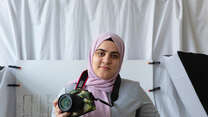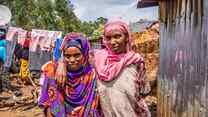This paper argues for an improved humanitarian response to urban displacement crises by working directly with municipal authorities and through a resilience lens. It draws on the International Rescue Committee (IRC)’s collaboration with 100 Resilient Cities – Pioneered by The Rockefeller Foundation (100RC) and engagement with two municipal authorities, the Greater Amman Municipality (GAM) and the Kampala Capital City Authority (KCCA). The IRC first worked with Amman, a member of the 100RC network, to support their city resilience planning. While Kampala is not in the 100RC network, the IRC replicated its approach in Amman with KCCA to support their own plans and strategies and bring an urban resilience lens to displacement within Kampala. By discussing these relationships and the process behind them, this paper highlights how humanitarian-municipal partnerships can achieve the following benefits:
- Strengthening coordination, sustainability, and impact of multi-stakeholder responses to urban displacement;
- Linking humanitarian programming to long-term development goals of the city;
- Improve the understanding of municipal authorities in relation to the needs and preferences of urban displaced; and
- Ensure the inclusion of displaced and marginalized residents in municipally-provided public services.
Urban displacement cuts across city and humanitarian sectors. It is the collective responsibility of the international community and the localities we serve to strengthen city resilience in the face of urban displacement, and we cannot do so without relying on both humanitarian and municipal actors. Whereas humanitarians have the expertise to respond to crises, municipal actors have the mandate to build from them. Urban resilience asks for both; that we learn to not only respond to displacement crises and aid the communities they affect in equal measure, but, in doing so, to improve those communities to be better prepared for future crises and have a higher overall quality of life; especially for displaced and marginalised city residents.



